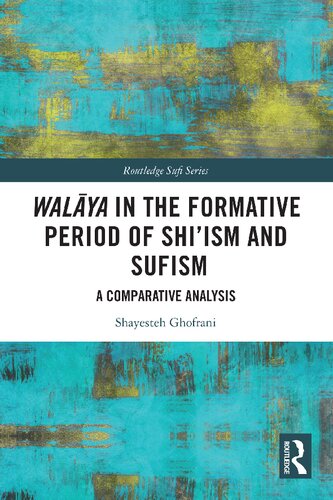

Most ebook files are in PDF format, so you can easily read them using various software such as Foxit Reader or directly on the Google Chrome browser.
Some ebook files are released by publishers in other formats such as .awz, .mobi, .epub, .fb2, etc. You may need to install specific software to read these formats on mobile/PC, such as Calibre.
Please read the tutorial at this link: https://ebookbell.com/faq
We offer FREE conversion to the popular formats you request; however, this may take some time. Therefore, right after payment, please email us, and we will try to provide the service as quickly as possible.
For some exceptional file formats or broken links (if any), please refrain from opening any disputes. Instead, email us first, and we will try to assist within a maximum of 6 hours.
EbookBell Team

0.0
0 reviewsFocused on Shi’ism and Sufism in the formative period of Islam, this book examines the development of the concept of walāya, a complex term that has, over time, acquired a wide range of relationships with other theological ideas, chiefly in relation to the notion of authority.
The book offers a textual and comparative analysis of walāya based on primary sources in the ninth and tenth centuries, from both Shi’i and Sufi circles. The starting point is one of the oldest surviving Shi’i sources, Kitāb Sulaym. Alongside this, the author analyses al-Īḍāḥ of Faḍl Shādhān al-Nishābūrī, Kitāb al-Maḥāsin of al-Barqī and Kitāb al-Kāfī of al-Kulaynī. Three major texts in Sufism are considered: Kitāb al-Ṣidq by Abū Saʿīd al-Kharrāz, Tafsīr al-Qurʾan al-ʿAẓīm by Sahl al-Tustarī, and Al-Tirmidhī’s Kitāb Sīrat al-Awliyāʾ. Together, these sources highlight the doctrinal aspects of walāya, exploring the identity, function, appointment, and description of those considered 'walī'. The author ultimately argues that walāya is a cluster of rich, deep-rooted responses to the question of authority, developed within both Shi’ism and Sufism after the death of the Prophet.The book is much-needed reading for students and scholars interested in Shi’i and Sufi studies and Islamic philosophy.